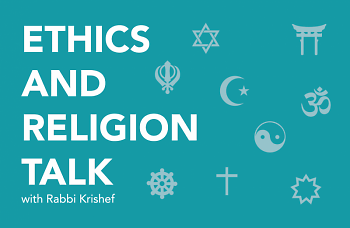Father Kevin Niehoff, O.P., a Dominican priest who serves as Judicial Vicar, Diocese of Grand Rapids, responds:
The premise of this question is freedom. The Roman Catholic Church teaches, “freedom is the power, rooted in reason and will, to act or not to act, to do this or that, and so to perform deliberate actions on one’s one responsibility” (Catechism of the Catholic Church, p. 430). Further, “by free will one shapes one’s own life. Human freedom is a force for growth and maturity in truth and goodness; it attains its perfection when directed toward God, our beatitude” (Ibid.).
God does not control human beings. God does not choose for us to go to heaven or hell. The Church insists, “the more one does what is good, the freer one becomes” (Ibid.).
Human beings are truly free within boundaries. By their nature, human beings may freely discover the boundaries God set. The truth is the boundary humans seek. The truth is found in goodness and dignity when we respect one another as beings created by God.
Linda Knieriemen, a retired pastor of the Presbyterian Church (USA), responds:
God’s primary characteristic is love. It would go against God’s integral nature to banish some of God’s creation to hell. Love does not do this. Hate does.
I believe that God’s goodness and light will accompany us all after our death unless we choose otherwise. If a person chooses violence, hatred and evil in this life they are making a choice now for what comes later. A loving God will not choose suffering in hell for anyone. If there is a hell at all!
Fred Stella, the Pracharak (Outreach Minister) for the West Michigan Hindu Temple, responds:
The Heaven/Hell binary paradigm does not exist in Hinduism. All souls that were embodied in human form are destined to one day unite with Brahman (God). However, the path is a circuitous one. According to the doctrine of samsara, we may all go through multiple births before we become truly God-conscious. At that point there is no reason to experience mortality again. During our individual lives we have complete freedom to turn toward a noble, self-sacrificing life, or lead one of selfishness, hedonism and cruelty. But it’s like we all have a ticking timebomb buried in the soul. At some point, when it goes off, we are shaken from our delusive sleep which has us believing that material goods (above and beyond what might be needed for reasonable sustenance and comfort), fame, sensual delights, etc., will bring us happiness. When this happens, we start to point ourselves in a Godward direction.
The Reverend Colleen Squires, minister at All Souls Community Church of West Michigan, a Unitarian Universalist Congregation, responds:
Most Unitarian Universalists believe in free will, that we are in control of our own destinies. Certainly there are extenuating circumstances that will play a role in our fate but in large part it is our choices and actions that navigate the life we are living.
Rev. Ray Lanning, a retired minister of the Reformed Presbyterian Church of North America, responds:
Human beings are indeed creatures of choice. We make choices every day, and even small choices can have far-reaching, long-lasting effects or results, as Robert Frost observed in “The Road Not Taken.” Modern psychology has shown how complex the human will is, how many factors influence it, and how it can be manipulated. Long before, Reformed Christians held, first, that left to themselves, human beings are inclined to make wrong choices with devastating consequences, because our wills are corrupted by sin. Living in a culture in which much that is good is called evil, and much evil is prized as something good (Isaiah 5:20), it is only acting according to our fallen nature to choose the evil and reject the good.
Second, Reformed Christians believe that in saving sinners, God does not coerce or compel. Rather, God renews them from within. “This grace of regeneration does not treat men as senseless stocks and blocks, nor takes away their will and its properties, neither does violence thereto; but spiritually quickens, heals, corrects, and at the same time sweetly and powerfully bends it; that where carnal rebellion and resistance formerly prevailed, a ready and sincere spiritual obedience begins to reign; in which the true and spiritual restoration and freedom of our will consist” (Canons of Dort, Head V, Article 16). Or as David put it, “Thy people, O Lord, shall be willing in the day of Thy power” (Psalm 110:3).
My response:
Congratulations! It is not often that a multi-faith group of clergy responds to a question about religion and we find that the entire panel is in complete agreement. I, like my Hindu, Unitarian, Catholic, Presbyterian, and Reformed Presbyterian colleagues, agree that the notion that God would create a human race of pre-programmed, God-controlled, robots is nonsensical. Of course we make choices. Nothing else makes sense.
This column answers questions of Ethics and Religion by submitting them to a multi-faith panel of spiritual leaders in the Grand Rapids area. We’d love to hear about the ordinary ethical questions that come up in the course of your day as well as any questions of religion that you’ve wondered about. Tell us how you resolved an ethical dilemma and see how members of the Ethics and Religion Talk panel would have handled the same situation. Please send your questions to [email protected].
The Rapidian, a program of the 501(c)3 nonprofit Community Media Center, relies on the community’s support to help cover the cost of training reporters and publishing content.
We need your help.
If each of our readers and content creators who values this community platform help support its creation and maintenance, The Rapidian can continue to educate and facilitate a conversation around issues for years to come.
Please support The Rapidian and make a contribution today.
